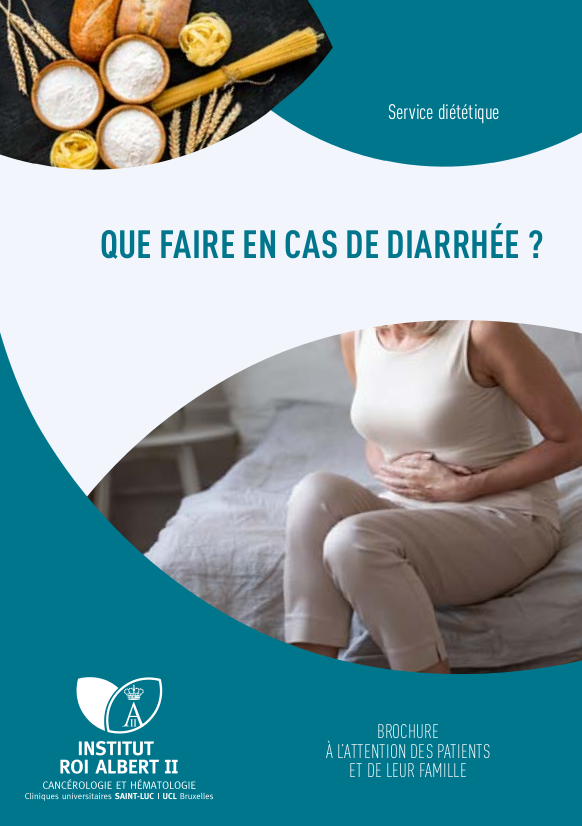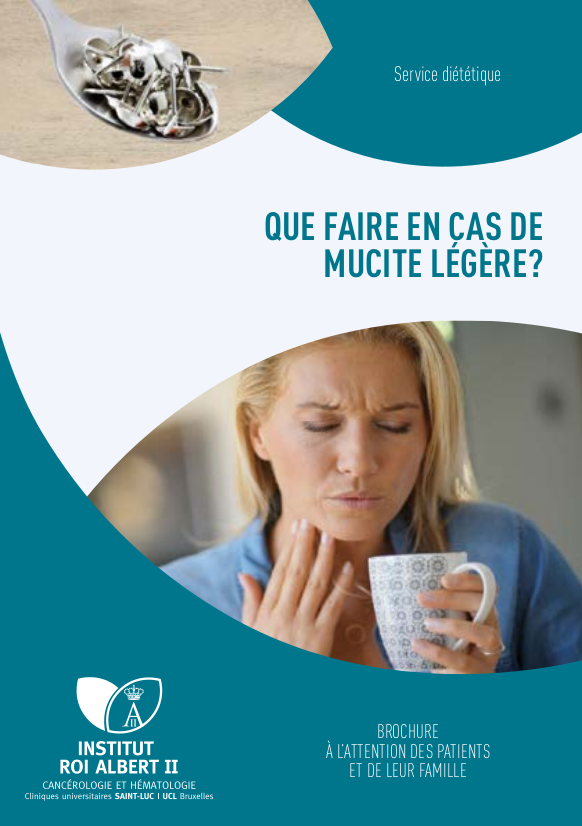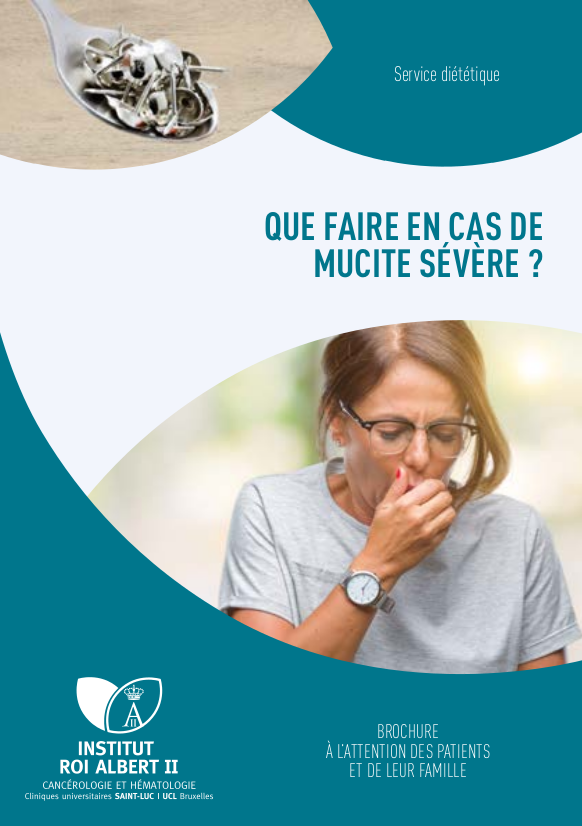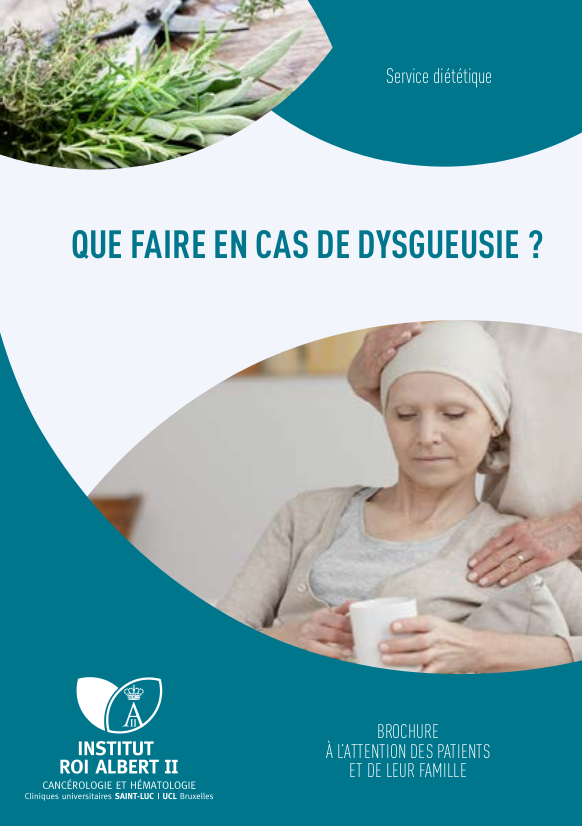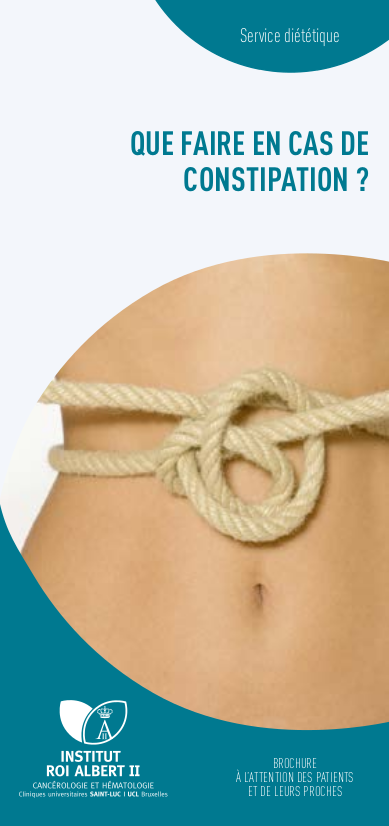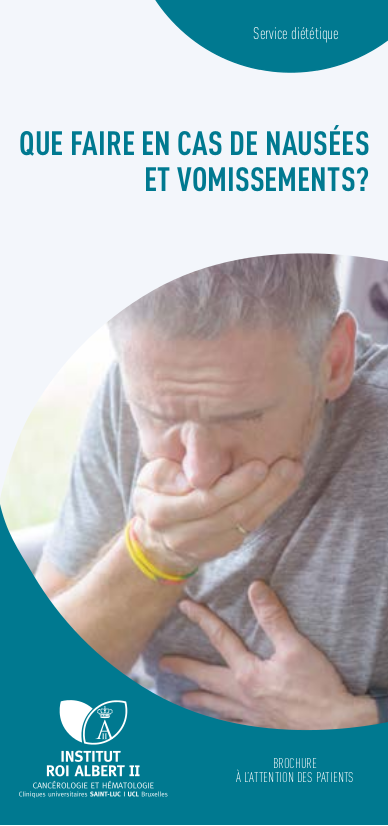Adult medical and paramedical support care

Help with pain
Pain is an unpleasant sensory and emotional experience, associated with an actual or potential tissue lesion or described in terms that evoke such a lesion. This pain can be "physical" but also "psychic", i.e.: anxiety, depression, anger, guilt, etc., "social": administrative worries, loss of social and/or family position, financial worries, etc., or "spiritual": meaning of life, fear of death, ....
In general, it is estimated that 30 to 50% of pain is poorly relieved, whereas if the treatment is optimal, only 5% of pain is resistant to treatment. Neuropathic pain, incidental component, tolerance phenomenon, ....
Pain management must be multidisciplinary: doctor, nurse, psychologist, social worker, chaplain, physiotherapist, etc.
In terms of medication, we follow the different levels of the WHO scale. Level 1 includes non-morphinics, level 2 proposes minor opiates and level 3, we find morphinic derivatives. In addition to these different levels, there are so-called "adjuvant" drugs that complete the classic treatment. The treatment of pain is associated with the treatment of certain side effects such as constipation or nausea.
We prefer the oral route, which is easy and allows the patient to remain autonomous, but, depending on the circumstances, we also use the subcutaneous or intravenous route.
When the drug treatment is insufficient, we use techniques specific to anesthesiologists, such as epidurals or even intrathecal. We regularly consult with members of the pain clinic, whose collaboration is invaluable.
A "pain" consultation, provided by doctors specializing in anesthesiology, is specifically intended for patients of the King Albert II Institute, guaranteeing them rapid and adequate care.
Coördinator voor oncologische zorgen - COZ
In order to guarantee optimal quality care for all patients, the King Albert II Institute has created a position that is still unique in Belgium: the position of oncology care coordinator (OCC). The OCC has a bachelor's degree in nursing or a master's degree in biomedical sciences.
In addition to the doctors, the OCC is the patient's contact within the hospital. He/she is the patient's contact within the hospital and acts as a guiding light throughout the patient's clinical course, from diagnostic development to post-treatment follow-up. He or she ensures perfect coordination between the various specialists and organizes the scheduling of examinations and treatments to optimize the patient's chances of remission. Available to answer all the patients' questions, he or she is the key person in linking the different phases of the treatment and orienting the patient while ensuring a good understanding of the situation.
Their coordinating role is not limited to the hospital; they also establish contact with patients when they are at home and with the referring physician and specialist in order to optimize care through the proper transmission of information.
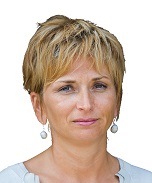
Laurence BEAUSAERT
Valentine CATOIRE
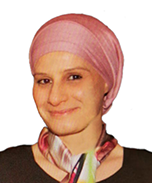
Samira Chellouki
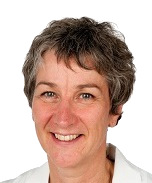
Marianne DEMORCY
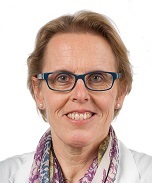
Charlotte GOEMAERE
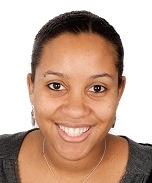
Monique KASA VUBU
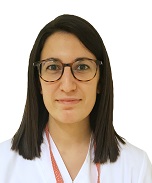
Funda KUTLU
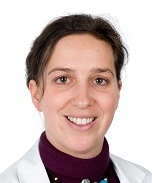
Sylvie LAMBIN
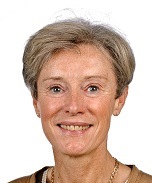
Nathalie LEGRAND
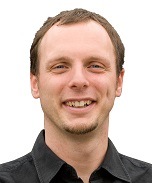
Frédéric MADDALENA
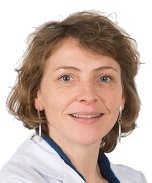
Annie MOREL
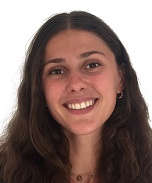
Marine NÈVE de MÉVERGNIES
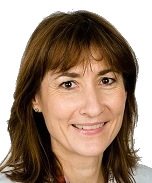
Christine REMACLE
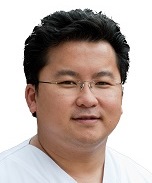
Dang TRINH
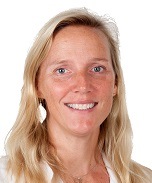
Stéphanie van RAEMDONCK
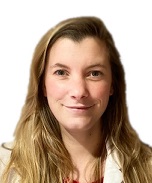
Burçin VANKEERBERGEN
Physiotherapists
Whatever your path, never hesitate to turn to the physical therapy team! They will be happy to help you! The disease, like the treatments, often leads to an alteration of the general state of health for which the physiotherapists will provide you with useful advice or assistance at any time.
The side effects of treatment, such as intense fatigue, scarring, lymphedema, physical changes, etc. are various symptoms for which this team will be able to help you.
They have also set up the "Exercise Medicine" project, which offers structured support in the practice of physical exercises during treatment.
The benefits of this program are multiple: maintenance or improvement of physical capacity, fight against fatigue, cardiac and respiratory improvement, improvement of muscle mass, elimination of fat mass, reduction of joint pain, reduction of anxiety but also an important support thanks to an extremely positive and supportive group dynamic!
Don't hesitate to talk to your doctor to find out how to join our groups!
The physical therapists also offer a Nordic walking activity. Click here to find out more.
Finally, if hospitalization is necessary at some point during your treatment, they will be at your side to accompany you and help you stay in shape (physical maintenance, help with respiratory clearance, help with pain management, etc.)
In the outpatient department, various consultation options are available.
Whatever your questions and needs, do not hesitate to contact one of them! They are there for you!
Ingrid DE BIOURGE
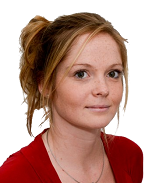
Maëlle DETRY
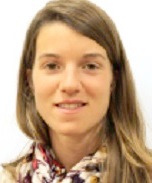
Florie EVERARD
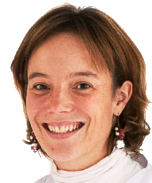
Anne-Claire LATIERS
Chloé LEJEUNE
Elise PIRAUX
psychological support
The announcement of a cancer shakes the patient both physically and psychologically. It also destabilizes the family and friends and can cause social difficulties. Sometimes, the treatments can be heavy and the follow-up restrictive. All of these factors can lead to difficult moments in the life of the patient and those around him. It is in this perspective that the assistance of a psychologist is proposed. The psychologist can intervene at each stage of the disease, either in the various care units or in consultation.
Onco-psychologists also offer self-hypnosis training cycles. This tool can activate inner resources and provide concrete help and support when confronted with the disease. Talk about it with your psychologist.
Laurie de BASSOMPIERRE
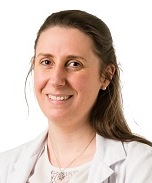
Catherine DENOEL
Victorine DETRAUX
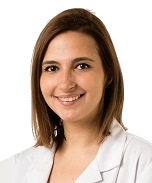
Naila EL IDRISSI
Amandine FALISSE
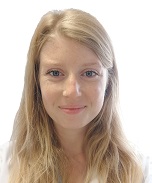
Amélie HOCEPIED
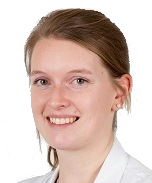
Emilie MONNART
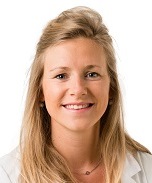
Charline PIGNOLET
Yasmine SAMIR
Moeka YOSHIOKA
Dietary department
Patients of the King Albert II Institute of Cliniques Universitaires Saint-Luc can benefit from the advice of a nutrition professional during a free consultation.
The King Albert II Institute's dietary team is an integral part of the multidisciplinary team of the oncology care program. Its objectives are to ensure that the patient's nutritional status is optimal, to improve the quality of life while promoting the pleasure of eating and limiting the potential side effects of treatment. Thus, they are present to help the patient fight against symptoms that may occur during his treatment. The patient should not hesitate to consult them in the event of digestive problems, nausea, loss of appetite, involuntary weight loss, difficulty chewing, swallowing or taste disorders, etc., as soon as they appear.
Beyond the management of side effects, dietary management also allows the patient to be more autonomous in his food choices and to adopt a healthier lifestyle.
Do you have questions about food?
Are you eating less or differently?
Have you lost weight in the last few months?
Do not hesitate to make an appointment with your dietician, preferably at the following e-mail address:
Secretariatdietetique-saintluc@uclouvain.be or by phone at +32 2 764 37 36.
In order to best orient you, please mention the name of your referring oncology care coordinator (OCC).
Brochures are available for various problems you may encounter. Download them, see below.

Anouck DEL SOLO RINONES
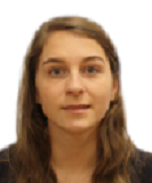
Chloé DESCHAMBRE
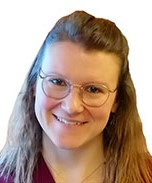
Laura PEETERS
Continuing care
In some cases, the treatment aimed at curing the disease or controlling it is no longer sufficiently effective. The goal then becomes the preservation of the patient's quality of life and comfort.
This is where the "Continuing Care Unit" comes into play. This team is made up of doctors specialized in cancer, family doctors, nurses, physiotherapists, psychologists and social workers. In addition, there are volunteers who offer patients and their families presence and availability.
Continuing or palliative care is a very specific field. Those who work in this field have been trained. They have been taught how to help, listen, provide psychological support to cancer patients, accompany their loved ones, control the symptoms of advanced disease and make decisions based on ethical principles.
The members of the continuing care team have both common and specific skills. The sum of these skills contributes to the same goal: the comfort and quality of life of the patient.
In our center, the Continuing Care Unit consists of three entities: a hospital unit, an interface team and a mobile team.
The hospital unit has several functions. It welcomes, if necessary or desired, patients at the end of life and provides them with the specific care required by this situation.
It is also used to evaluate the effect of a treatment administered at an advanced stage of the disease or to ensure optimal control of certain symptoms, such as pain. Finally, the loved ones of a patient at the end of life may also need to take a "breather", as the period they are going through is so heavy.
The architecture of the hospital unit favors both intimacy and conviviality. It is designed in such a way as to allow the stay of relatives.
The interface team is dedicated to patients whose end of life is at home. It is consulted when the caregivers who follow the patient on a daily basis (family doctors, nurses, etc.) express the wish to do so: it offers its help for specific care, such as administering painkillers with a pump. The interface team is also a link between the hospital and the home.
Finally, the "intramural" mobile team goes to the bedside of hospitalized patients in the various departments of the hospital. Like the other teams, it is intended for patients for whom the initial treatment aimed at curing or controlling the cancer is no longer satisfactory.
The mobile team also contributes to a better control of the symptoms, provides psychological support to the patient or his relatives, and helps to determine the orientation to be followed at the end of the specialized service (return to the home, accompaniment service, transfer to the hospital unit of continuous care or to a rest and care home, with or without the help of an accompaniment team...)
Like the interface team, the "intramural" mobile team intervenes when the department in which the patient is hospitalized requests it.
Help for smokers
The Smokers' Help Center of the Cliniques universitaires Saint-Luc, accredited by the FARES, offers its help and expertise to all smokers
- who wants to quit smoking, but can't see how to do it;
- who wants to prepare before a surgical procedure to optimize his chances of success;
- who wants to have a more comfortable hospital stay;
- who would like to improve their health and free themselves from this addiction;
- who would like to better understand the negative influence of tobacco on their health.
Tobacco is a very important risk factor that favors the occurrence of many diseases including cancer and worsens their evolution.
It is a risk factor that can be avoided, for yourself and your loved ones ....
Did you know that with the help of a tobacco specialist you can increase your chances of success in quitting smoking?
What do the tobacco specialists at the Smokers' Helpline offer you?
Tobaccologists are health care providers who specialize in the treatment of smokers. Their consultations aim to help you quit smoking or consider quitting and to offer you personalized advice. A psychologist and a dietician are also at your disposal.
During these consultations, the tobacco specialist :
- inform you about the three addictions related to tobacco (physical, psychological and gestural), the effects of tobacco on your health and the benefits of quitting.
- help you to take stock and motivate you in your decision to quit smoking.
- help you choose the most effective aids for personalized care and a comfortable quit.
- accompany you throughout the process if you wish.
8 consultations are reimbursed by mutual insurance companies over a two-year period. Some mutual insurance companies offer a complementary intervention, ask about it
Get the idea to stop!
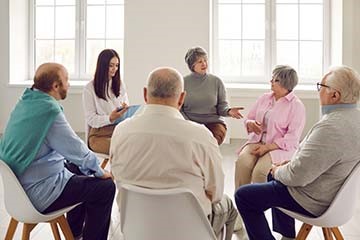
La maladie peut parfois provoquer des sentiments difficiles à gérer.
Les onco-psychologues de l'Institut Roi Albert II propose des groupes de parole afin de permettre aux patients touchés par la maladie de partager leurs doutes, leurs interrogations, leurs expériences, leurs craintes, ... d'entendre les autres et d'être écouté en toute confidentialité. Elles vous propose une série de rendez-vous abordant différents thèmes autour de la maladie en oncologie et hématologie.

